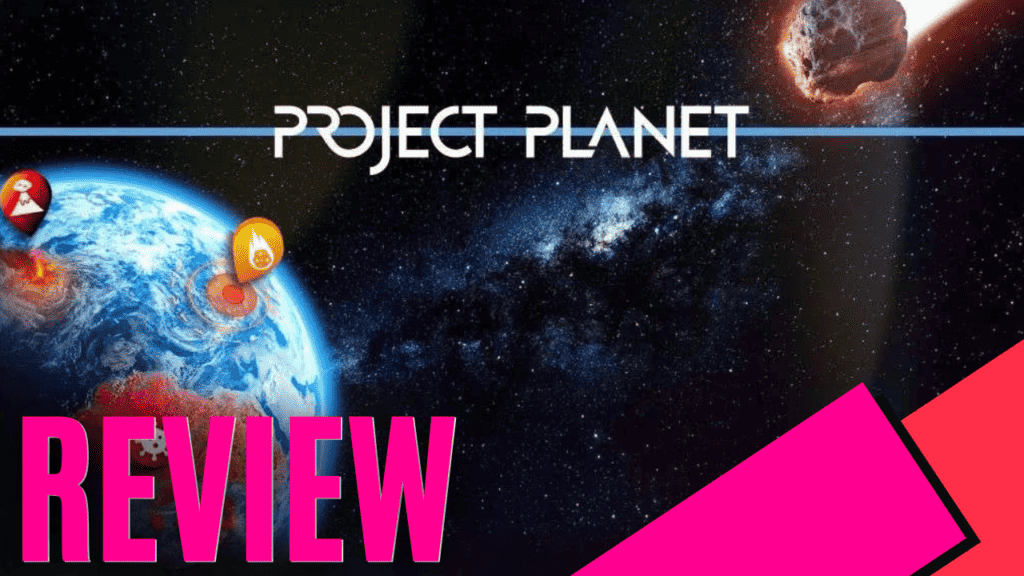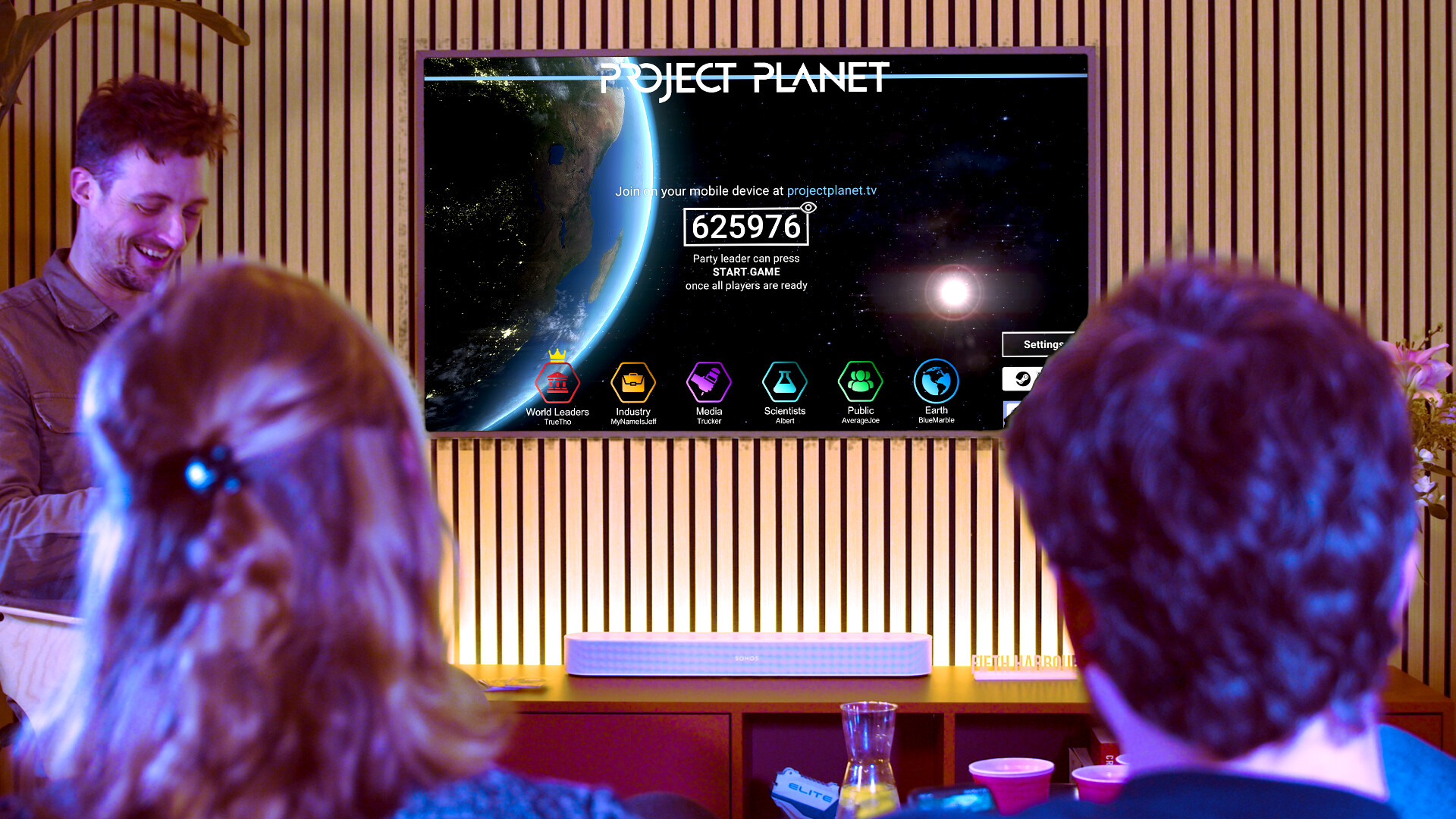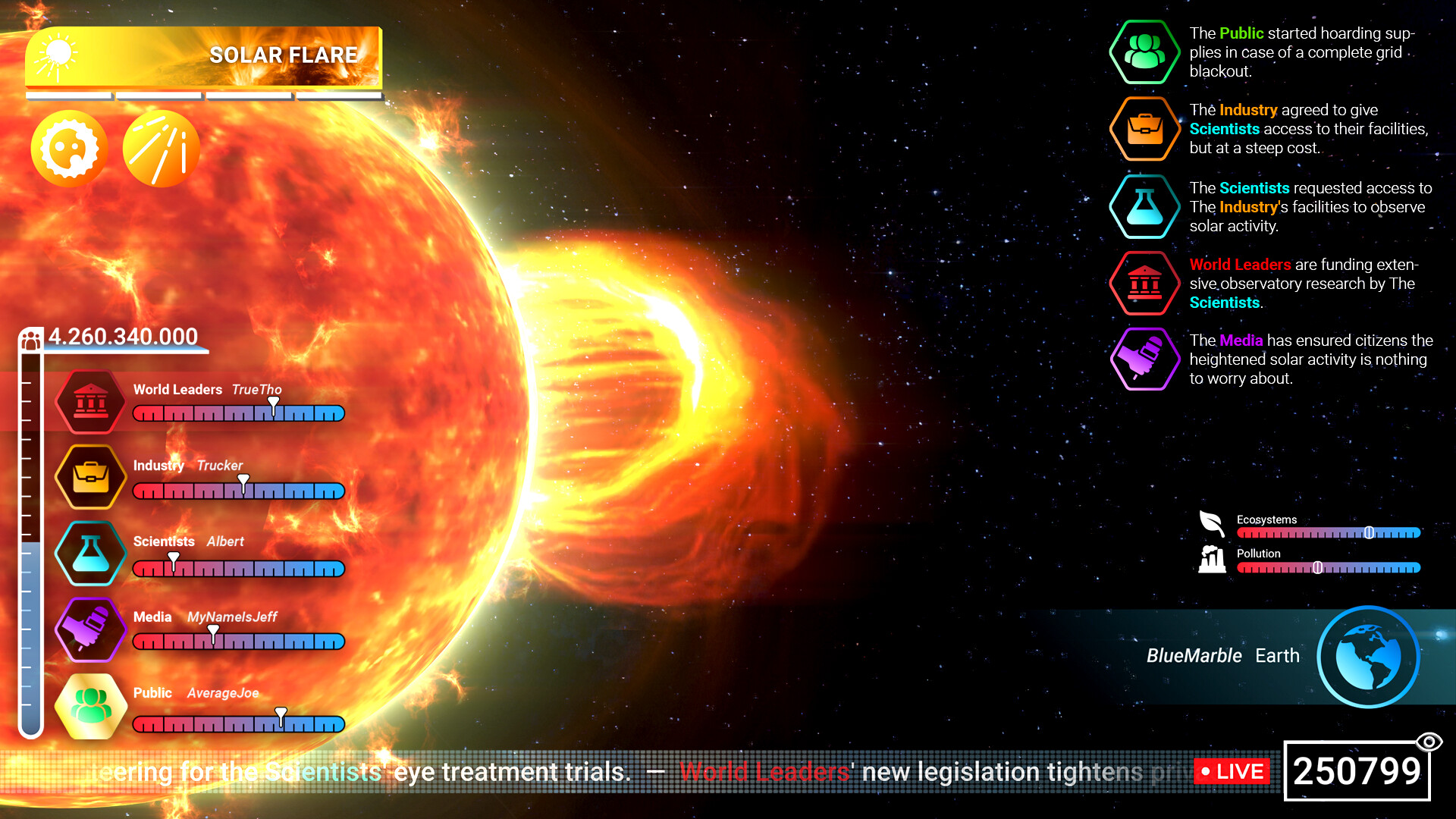
Project Planet – Earth vs Humanity is an upcoming strategy game developed and published by Fifth Harbour Studios. Are you wanting to destroy the Earth with a natural disaster or a pandemic, or are you wanting to save the population and make sure the human race survives? In Project Planet – Earth vs Humanity you can do both, and I’d wipe out the human race if I had the chance!
When we first load into the game, we’re given a code that we can enter at a website. This allows us to join the game as the leader. You can play against AI as the Earth, or you can attempt to play as one of the other roles that are attempting to defeat the Earth player. Or, if you’re playing with friends or family, you can have a full game, which is 6 players, with roles such as the World leaders, Industry, Scientists, Media, and the Public. These six roles need to work together to make sure the human race does not go extinct. If they survive the Earth’s actions, the player who has the highest score wins.
Before choosing which role you will be playing, you have the opportunity to watch a tutorial video that gives the player a good amount of information, and I’ll admit, when I first tried playing I was confused, but after watching the tutorial video, I started understanding what I was needing to do. I chose to play the Earth role while playing against the AI. When you do start playing as the Earth, you can choose from 3 starting disasters; Pandemic, Hurricane, and Locust Plague.

Choosing a disaster, you need to decide how much starting force you have, and if you decide to play the Pandemic route, you will only start with 50 force, and this can be recovered when playing, but doing so means you’ll be helping the other roles greatly, so you need to strategize what you’re going to be buying with your force.
There are four playable stages in the game, and these gradually build up and make the chosen disaster not as effective, so your goal would be to win before the stages get too high. At certain times, you can decide to trigger a crisis, which if the other players can’t match the amount of points put into it, a massive amount of population will be lost. You can also decide to affect the ecosystem or pollution levels, and at the end of the stage, the pollution level and ecosystem are counted and affect the stats of the stage.
I absolutely love the music in Project Planet – Earth vs Humanity. It isn’t too overpowering – it just makes the game feel really relaxing. Even when I’d need to use the website to play, I’d still be able to hear the music and it’s a really good addition to the title.

I also appreciated the sounds. Whenever there is a media event that happens, there is a voice-over narrating what is shown on the screen. This is a really nice touch, as when you’re not paying attention to the host’s screen, you’re reminded of what is happening, and it’s quite helpful for people who are unable to pay attention to multiple things at once.
The world globe that we’re shown during the time we’re playing is updated throughout the time of the game. It shows where a certain disaster started and what is being affected by it. With the pandemic disaster, you see several red dots that showcase what countries are infected and which are not. This is decent information that is good to know, and I appreciate the detail that went into the globe, especially when it turns to night. The countries are shown with light and certain other countries don’t get this effect.
Project Planet – Earth vs Humanity is a very exciting up-and-coming strategy game that I would happily play, and I’d strongly recommend it to my strategy-loving friends. The gameplay is fantastic and is quite fun, even when playing by yourself. The music, and audio in general, are also great, and really help to make the game more exciting. With plenty of attention to detail, it makes you feel like you’re actually watching Earth from above, and I’ll be sure to pick Project Planet – Earth vs Humanity when it officially releases.

The Good
- Interesting Gameplay
- Exciting Audio & Music
- Attention To Detail
- Interesting Mechanics
- Replayability








